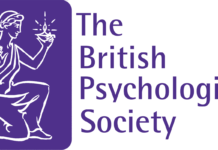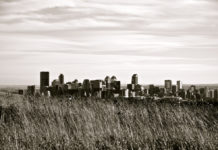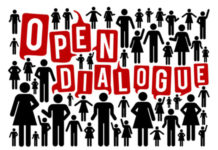Landmark Schizophrenia Study Recommends More Therapy
Results of a large government-funded study call into question current drug heavy approaches to treating people diagnosed with schizophrenia. The study, which the New York Times called “by far the most rigorous trial to date conducted in the United States,” found that patients who received smaller doses of antipsychotic drugs with individual talk therapy, family training, and support for employment and education had a greater reduction in symptoms as well as increases in quality of life, and participation in work and school than those receiving the current standard of care.
Mental Health Documentary “Healing Voices” Premiers Across 130 Communities in 8 Countries
The producers of “Healing Voices” ‐ a new social action documentary about mental health ‐ are releasing the film via community screening partners in...
Psychologists Push For New Approaches to Psychosis: Part 2
The authors of the report expand upon the traumatic and sociopolitical factors underlying presentations of psychosis and “schizophrenia.”
Changing Minds About Voices: Action Over Words
Sometimes the best way to make real change is just to do the work. Sometimes the talk is the work and it can be hard to separate out the two. However, in a growing number of instances, it’s hard to miss the futility of the talking and how tied up we can get in our own virtual war of words. Stepping away can be liberating. Sometimes, while everyone else is wrapped up in the talking, you can get an awful lot done.
Minority Discrimination Linked to Psychosis
A study published in this month’s issue of the Social Psychiatry and Psychiatric Epidemiology found that perceived discrimination related to minority status may precede...
Two-Thirds of Schizophrenia Patients Do Not Remit on Antipsychotics
A new analysis of antipsychotic treatment of schizophrenia (published in Schizophrenia Bulletin) has found that two-thirds of patients treated this way do not experience symptom remission.
Psychologists Push For New Approaches to Psychosis: Part 1
Psychologists and people with experience of psychotic symptoms publish a report on new ways of understanding psychosis.
Similarity of Dissociation and Voice-Hearing in DID and Schizophrenia
A study of 40 patients with schizophrenia diagnoses and 40 patients with dissociative identity disorder (DID) found that "neither phenomenological definitions of dissociation nor...
The Role of Context, Language, and Meaning in Hearing Voices
Sociocultural context, language, and sense-making process are among concepts that can help hearers and providers better understand the phenomenon of hearing voices
Helping People to Constructively Engage with Voices
When voices are engaged with creativity and compassion, the result can be a positive change in the relationship with voices, leading to much greater peace of mind. But how can people learn how to facilitate this? A new video series by Charlie Heriot-Maitland, Rufus May and Elisabeth Svanholmer offers some practical ideas.
Social Adversity and Crime Victimization Increase Risk of Psychotic Experiences Five Fold
Researchers parse out factors within urbanicity that leads to risk for psychotic experiences.
Social Recovery Therapy for First Episode Psychosis
Social Recovery Therapy shows promising results for individuals who experience first-episode psychosis.
Psychiatrist Asks Field to Drop Schizophrenia Classification
Dutch psychiatrist and epidemiologist, Jim van Os, has renewed his call to drop schizophrenia as a disease classification. “Several recent papers by different authors...
Research Is Shedding New Light on Hearing Voices
From Psychology Today: Although auditory hallucinations are commonly thought of as a sign of mental illness, research shows that hearing voices is common among the general population...
New Study Investigates Cannabidiol (CBD) for Psychosis
A new study examines the effects of CBD as an adjunct therapy to antipsychotic medication for patients diagnosed with schizophrenia.
Voices, Then & Now
As we approach world hearing voices day 2013 Karen and I are in Canada. We have just enjoyed running a preconference workshop for about 100 people in Winnipeg. I am sitting in my room before breakfast writing this piece and as I sit I am thinking back twenty-three years ago; I am in a psych unit in Manchester and I have a new support worker called Lindsay. By then I had been a psych patient for almost ten years and was fast approaching spending the rest of my life in the system. My support worker had convinced me to go to a new group that was starting in Manchester called a hearing voices group.
Dr. Pies Defending Psychiatry’s Position on Auditory Hallucinations
On September 4, 2017, psychiatrist Ronald Pies published an article titled: "Hearing Voices and Psychiatry’s (Real) Medical Model." Let's take a look at the six fundamental assumptions that the eminent and scholarly Dr. Pies assures us "underlie the model most psychiatrists actually use in their clinical work."
Hearing Voices, Emancipation, Shamanism and CBT: Thoughts After Douglas Turkington’s Training
When Doug Turkington, a UK psychiatrist, first announced to his colleagues that he wanted to help people with psychotic experiences by talking to them, he was told by some that this would just make them worse, and by others that this would be a risk to his own mental health, and would probably cause him to become psychotic! Fortunately, he didn’t believe either group, and in the following decades he went on to be a leading researcher and educator about talking to people within the method called CBT for psychosis.
A Daughter’s Call for Safety and Sanity in Mental Health
My mother was once a bright, creative, beautiful young woman, a promising artist and a poet, who was captivated by the hippie movement. She was a creative bohemian artist, defying the conventions of our middle-class Jewish Midwestern family, which had carried a tradition of holding emotions inside and acting stoic. One day, soon after my grandparents’ divorce, she left. She hitched a ride to California, and from that point on, was never the same. The police picked her up on a park bench in Arizona, and she was committed for the first time at age 18. She rotated in and out of mental hospitals, the streets, and jail until her death.
Mental Health Nurses Do Not Routinely Assess for Effects of Antipsychotic Medications
Researchers believe that side-effect monitoring is critical because of the increase in the use of antipsychotics
Childhood Victimization Connected with Experiences of Psychosis
Childhood victimization associated with experiences of psychosis later in life, and in persons without childhood victimization, there is a bidirectional association between psychosis and adult victimization.
Pilot Study Adapts Open Dialogue for US Health Care
In an article for Psychiatric Services, psychiatrist Christopher Gordon and his colleagues report on the results of a one-year feasibility study attempting to implement...
Large Study Confirms Elevated Risk of Diabetes When Prescribed Antipsychotics
A large longitudinal study finds once more that being prescribed antipsychotics significantly increases the risk of diabetes.
Psychiatrist Describes Role in Open Dialogue Model of Care
Psychiatrist outlines varying roles in Open Dialogue model, fostering service-user and family agency through meaningful conversations with a team of providers.
Exploring Alternate Pathways to Voice-Hearing
Authors propose various pathways to the phenomena of voice-hearing in clinical and nonclinical populations.
























